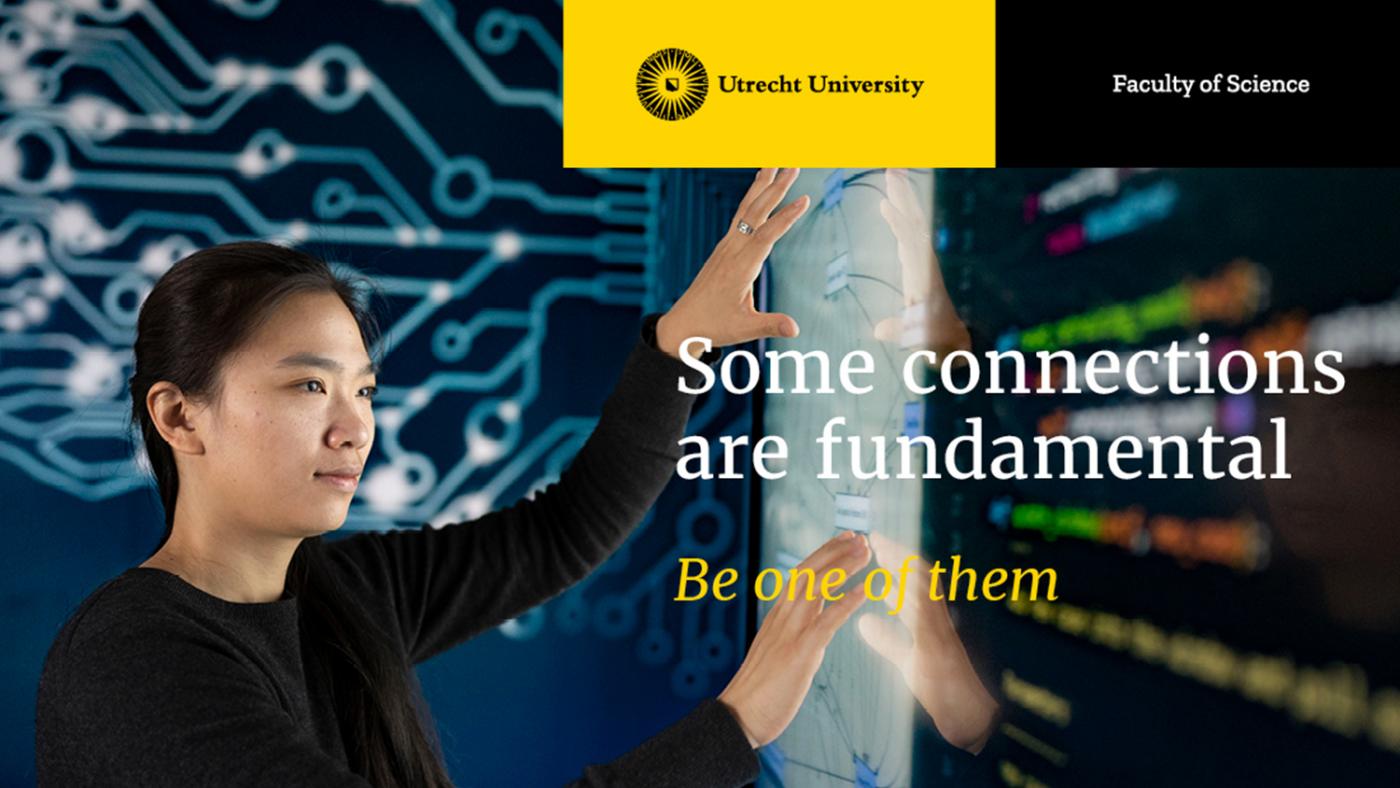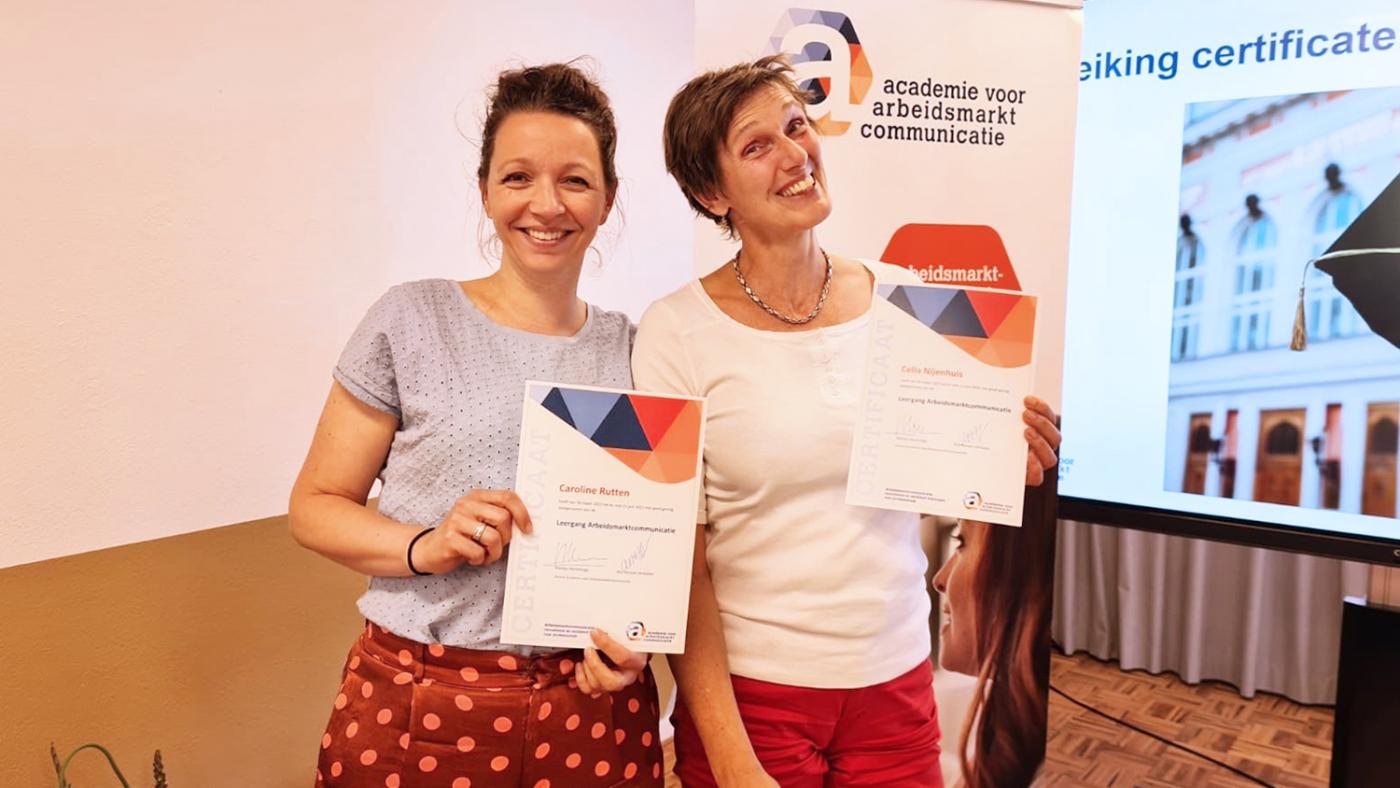Looking for new colleagues
Faculty of Science introduces new way to recruit employees

The Faculty of Science currently has about 7,400 students and employs almost 1,800 people. Due to an increase in the number of students and its success in obtaining research grants, the faculty is always looking for new staff for its support and scientific departments. In 2022, 414 new staff members were added to its payroll.
It hasn't always been easy to attain new employees these past few years because secretaries and ICT professionals in the private sector easily outearn university employees. That is why some of the employees of the Faculty of Science concluded that they should showcase the other advantages of working there. A campaign called Fundamental Connections was designed for this purpose, and the website Working at the Faculty of Science was revamped and relaunched at the end of April. The Faculty of Science is the first UU faculty to profile itself on the labour market in this way.
New insights and talents
The faculty first started thinking about how to implement a more sustainable recruitment policy about four years ago, recollects the recruitment advisors Caroline Rutten and Celia Nijenhuis, who are jointly responsible for labour market communication. The changes have been gradual, like Rutten's appointment to the role of recruitment advisor, a position that wasn't very common at the university. It is not her job to actively look for candidates but rather to oversee, alongside other colleagues, all the recruitment and selection procedures used across the faculty, making sure that they are standardised. “For example, the job descriptions have been adjusted so that more people would feel welcome here. Women tend to react differently to certain texts than men, for instance. Since we would like to have more women occupying certain positions, we are now paying more attention to the wording.”
But that's not all. To verify whether the application procedures can be improved, all applicants will be asked to comment on their experience — even those who end up not getting the job. “Rejections should also convey a positive feeling. After all, maybe this person is not suitable for this position but they could be suitable for a future one,” explains Rutten. The contact details of rejected applicants who almost got the job are kept in a rotating card file, as are the contacts of those who seem suitable for positions for which there is no vacancy at the moment and those who were not ready to change jobs just yet.

Caroline Rutten and Celia Nijenhuis.
Truthful
Communication-wise, the team is trying to make sure that the job descriptions offer an accurate picture of what it is like to work for the university. “Utrecht University has a good reputation but many people don't know what kind of employer it is, especially at our faculty,” observe Rutten and Nijenhuis. “We may not be able to compete with the private sector in terms of salary but UU does have very good secondary employment conditions and offers many opportunities for personal development. We want to show what it’s like to work with us.”
In addition, Rutten and Nijenhuis stress the importance of a pleasant working environment for everyone. Job descriptions are carefully written to appeal to as many people as possible and to convey the pleasantness of the working environment. Rutten: “For example, we do recruit internationally but if someone needs to be persuaded to move to the Netherlands for work, it must be clear for them in advance that they will feel at home here.”
To present a true picture, in the autumn of 2022, all scientists from the faculty were asked to participate in a survey about what it is like to work at the faculty. “This survey gave us examples of how we can distinguish ourselves positively. Respondents mentioned the high degree of collegiality and appreciation, as well as the support and flexibility of the faculty and good work-life balance,” says Nijenhuis.
"I’d like to work there too"
In addition to performing better in the job market, the survey revealed that the faculty should also be visible in a more continuous way, not just when there is a vacancy. That way, the faculty would appeal to people who may not be actively looking for another job but might be persuaded to do so. Recruiters usually know in advance that a vacancy will open. "This is something you can anticipate. You can also predict whether the number of students will grow and more lecturers will be needed,” comments Rutten.
“Research shows that you can more or less convince a latent seeker to apply,” Nijenhuis adds. “If they see our faculty on social media often, they can get curious and take a look at our website, which we hope will get them to think: ‘I would like to work there too.’”
The new campaign
The campaign was launched last month. Seven scientists from the faculty are showing their faces on several social media platforms and the faculty's new Linkedin page. They talk about how they like working at UU and the Faculty of Science in particular, sharing what motivates them, their views on the education provided and how they work together inside and outside of the faculty. Then comes a link to the revamped pages about working at the Faculty of Science, where visitors can find more testimonials and practical information such as the lines of research carried out at the faculty and the renowned scientists working there. A tab titled What’s in it for you highlights secondary employment conditions such as the opportunities for development offered by the university. To encourage women to join the faculty, three scientists talk about how they were supported by the faculty when they came back from maternity leave.